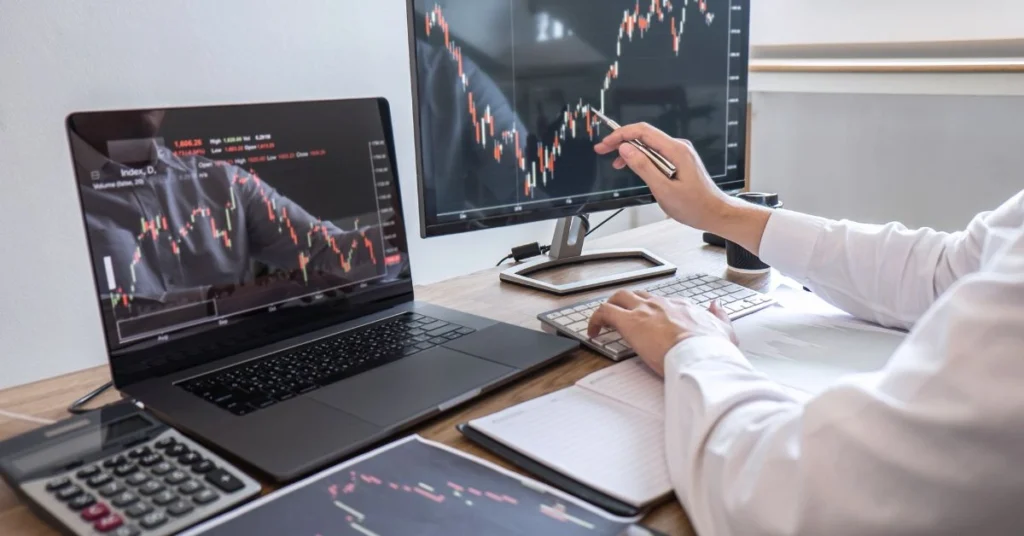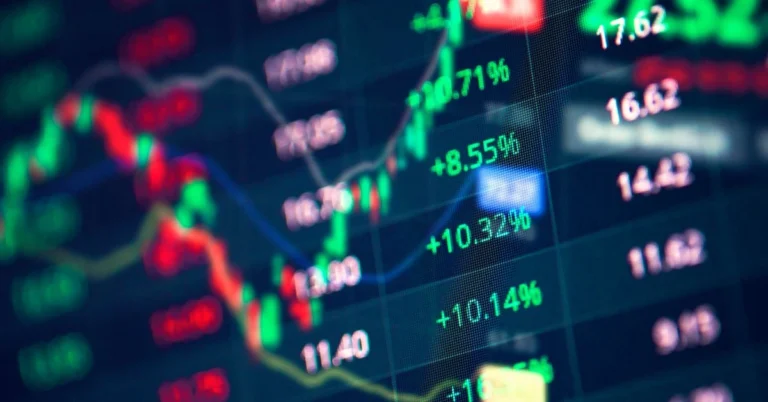Crypto30x.com Regulation: Key Insights for Traders
Crypto30x.com is a cryptocurrency trading platform that allows users to buy, sell, and trade digital assets. It has gained attention for its services, but traders are concerned about its crypto exchange legal status. Understanding its cryptocurrency exchange regulation is crucial for ensuring secure crypto transactions.
Government regulations on crypto play a key role in the cryptocurrency industry. Financial authorities create crypto compliance policies to protect investors from fraud and illegal activities. A regulated vs unregulated exchange is generally considered safer due to cryptocurrency investor protection.
Many traders prefer platforms that comply with crypto trading platform compliance. Compliance ensures that the exchange follows crypto platform financial laws related to security, transparency, and anti-money laundering in crypto (AML). Without regulation, users may face cryptocurrency trading risks such as scams, hacks, or sudden platform shutdowns.
A platform’s crypto exchange licensing requirements determine how it operates in different countries. Some nations require exchanges to register with financial watchdogs in crypto before offering services. Others have stricter policies that ban or heavily regulate crypto trading.
A platform’s crypto trading legal framework affects its reputation and reliability. Traders need to know if an exchange meets cryptocurrency fraud prevention measures and follows digital asset security laws. This helps them make informed decisions and avoid unnecessary risks.
Understanding the impact of crypto regulations on traders is essential for both beginners and experienced investors. It affects how funds are protected and whether transactions are legally recognized. Ignoring regulations can lead to legal challenges in crypto trading and financial losses.
This blog will explore the cryptocurrency compliance policies in detail. It will cover crypto exchange security standards, global regulations, and the effect on users. By the end, you will understand whether it is a secure crypto transaction option for trading.
| Aspect | Fact | Figure |
|---|
| Crypto30x.com Overview | Crypto30x.com is a cryptocurrency trading platform for buying, selling, and trading digital assets. | – |
| Legal Concerns | Traders are concerned about Crypto30x.com’s regulatory status and its compliance with financial laws. | – |
| Regulated vs. Unregulated Exchange | Regulated exchanges provide investor protection and fraud prevention, while unregulated ones pose higher risks. | – |
| Crypto Compliance Policies | Compliance ensures security, transparency, and adherence to anti-money laundering (AML) regulations. | – |
| KYC & AML Policies | Know Your Customer (KYC) and Anti-Money Laundering (AML) policies prevent fraud and illegal transactions. | – |
| Security Measures | Regulated exchanges implement 2FA, encryption, and cold storage to protect digital assets. | – |
| Crypto Exchange Licensing | Licensing depends on the country, with some requiring registration with financial authorities. | – |
| Crypto Trading Risks | Unregulated exchanges may face hacks, scams, and sudden shutdowns. | $3.8 billion lost in crypto hacks (2022) |
| Government Regulations | Some nations ban or heavily regulate crypto trading, while others support it. | 50+ countries regulate crypto exchanges |
| US Regulations | Exchanges must register with the SEC and FinCEN, following strict compliance rules. | – |
| EU Regulations | Governed by MiCA, requiring security standards and investor protection. | MiCA regulation applies to 27 EU nations |
| Asia Regulations | Japan and Singapore enforce strict compliance, while China bans crypto trading. | China bans crypto since 2021 |
| Middle East & Africa | Some nations embrace crypto innovation, while others remain cautious. | – |
| Crypto Exchange Insurance | Some regulated platforms offer insurance against hacks and fraud. | Up to $250M coverage on top exchanges |
| Legal Risks of Unregulated Exchanges | Governments can shut down unregulated exchanges, leading to financial losses. | 10+ major exchanges shut down in 2023 |
| Impact on Traders | Regulatory status affects transaction security, fund protection, and platform reliability. | 70% of traders prefer regulated platforms |
| Conclusion | Choosing a regulated exchange ensures better security, compliance, and transparency. | – |
Legal Status and Compliance of the Platform

Is the Exchange a Regulated Platform?
A regulated vs unregulated exchange must follow crypto platform financial laws set by authorities. These laws ensure cryptocurrency fraud prevention and user protection. Understanding if a platform is regulated helps traders assess its crypto trading legal framework.
A platform’s crypto exchange licensing requirements depend on the country it operates in. Some crypto trading platform compliance policies require exchanges to register with multiple financial bodies to offer services worldwide. Others operate in cryptocurrency trading risks zones with fewer regulations.
If an exchange is regulated, it must comply with financial watchdogs in crypto and their security standards. These include crypto investor risk management, regular audits, and fraud monitoring. If it is unregulated, users may face higher cryptocurrency trading risks.
Does the Platform Follow KYC and AML Policies?
KYC (Know Your Customer) policies require users to verify their identity. This prevents cryptocurrency fraud prevention measures, money laundering, and illegal activities. Most regulated exchanges enforce crypto platform user verification to protect users.
Anti-money laundering in crypto (AML) policies ensure criminals do not use the platform for unlawful transactions. These rules require monitoring transactions and reporting suspicious activities. Platforms that follow cryptocurrency compliance policies are considered safer.
If a crypto exchange follows KYC and AML in crypto, it adds a layer of trust. Users who verify their identity may have better cryptocurrency investor protection. However, some traders prefer anonymity, which unregulated crypto trading platform compliance may allow.
Security Measures and User Protection
Regulated platforms implement strong crypto exchange security standards to protect user funds. These include secure crypto transactions with two-factor authentication (2FA), encryption, and cold storage for digital asset security laws. A lack of security can expose users to cryptocurrency trading risks.
Exchanges must ensure users’ funds are protected from cyber threats. If they have a secure infrastructure, traders can feel confident in their investments. If security is weak, hackers may exploit vulnerabilities, leading to legal challenges in crypto trading.
Crypto exchange insurance policies also play a role in protecting users. Some regulated exchanges offer insurance on deposits in case of hacking or fraud. If an exchange has insurance, it increases crypto investor risk management.
Legal Risks of Trading on an Unregulated Platform
If an exchange is unregulated, it may face legal challenges in crypto trading in certain countries. Governments can shut down platforms that do not comply with cryptocurrency exchange regulation. This can lead to users losing access to their funds.
Some exchanges claim to be regulated but operate in crypto trading legal framework gray areas. This means they are not fully compliant with financial watchdogs in crypto. Traders should verify a platform’s crypto trading platform compliance before investing.
Legal risks also affect cryptocurrency withdrawal policies. If an exchange faces legal trouble, users may struggle to withdraw funds. Understanding the impact of crypto regulations on traders helps them make informed decisions.
Global Regulatory Perspectives on Crypto Exchanges

How Different Countries Regulate Cryptocurrency Exchanges
Cryptocurrency exchange regulation varies across the globe. Some governments support secure crypto transactions, while others ban or restrict digital asset trading. Understanding these laws helps traders assess a platform’s crypto trading legal framework.
The United States enforces strict crypto platform financial laws. Exchanges must register with agencies like the SEC and FinCEN. They must also follow KYC and AML in crypto to operate legally.
The European Union implements cryptocurrency compliance policies under MiCA. Exchanges must meet crypto exchange security standards to protect investors and prevent cryptocurrency fraud prevention.
Crypto Regulations in Asia and Other Regions
Asia has a mix of strict and flexible cryptocurrency compliance policies. Countries like Japan and Singapore have clear crypto trading legal frameworks requiring exchanges to be licensed. They also enforce crypto platform user verification and cryptocurrency investor protection.
China, however, has banned crypto trading platform compliance and mining. The government considers cryptocurrencies a financial risk. Many exchanges that served Chinese users have moved to other countries.
Other regions, like the Middle East and Africa, are still developing digital asset security laws. Some embrace crypto innovation, while others remain cautious. Traders should check international crypto trading rules before using any exchange.
Conclusion
Understanding the legal status and compliance policies of cryptocurrency exchanges is essential for ensuring secure trading. A regulated platform adheres to global financial laws and standards, offering enhanced protection against fraud, money laundering, and other risks. By verifying whether a platform follows KYC, AML, and strong security measures, traders can safeguard their assets and reduce legal challenges. On the other hand, unregulated exchanges carry significant risks, including potential shutdowns and difficulties in accessing funds. As cryptocurrency regulations evolve worldwide, staying informed about the legal frameworks in different countries can help traders make safer and more informed decisions.
Ultimately, choosing a regulated exchange that prioritizes security, compliance, and transparency helps ensure a smoother and more trustworthy trading experience.
What is the difference between a regulated and an unregulated cryptocurrency exchange?
A regulated exchange follows financial laws set by government bodies, offering protections against fraud, money laundering, and ensuring transparency. An unregulated exchange may not comply with these standards, potentially exposing users to higher risks such as scams, hacks, or sudden shutdowns.
What are KYC and AML policies, and why are they important?
KYC (Know Your Customer) and AML (Anti-Money Laundering) policies are essential compliance measures that require exchanges to verify the identity of users and monitor transactions for suspicious activity. These policies help prevent fraud and illegal financial activities, providing a safer trading environment for investors.
How can I tell if a cryptocurrency exchange is regulated?
A regulated exchange will typically have licenses from financial authorities and must comply with specific security and transparency standards. Traders should check if the platform follows regulations such as KYC/AML procedures and is registered with relevant regulatory bodies in their region.
What security measures should a regulated exchange have?
Regulated exchanges typically implement robust security features like two-factor authentication (2FA), encryption, and cold storage for digital assets. These measures help protect user funds from cyber threats. Some platforms may also offer insurance for deposits, providing additional protection in case of a hack or fraud.
What risks do I face when trading on an unregulated platform?
Unregulated platforms can expose traders to significant risks, including fraud, data breaches, and difficulty withdrawing funds. Without regulatory oversight, there is also a higher chance of encountering legal challenges if the platform is shut down by authorities.
How do global regulations affect cryptocurrency exchanges?
Cryptocurrency regulations vary by country. Some nations, like the US and the EU, have strict regulations requiring exchanges to comply with specific financial laws. Other countries, such as China, have banned crypto trading. Traders should be aware of the regulations in their respective regions to understand the legal status of their chosen exchange.
Can a cryptocurrency exchange face legal issues for not complying with regulations?
Yes, exchanges that fail to comply with local and international regulations can face legal consequences, including fines, shutdowns, or restrictions on operations. Traders using unregulated platforms may also face challenges accessing their funds if legal issues arise.
How can I ensure the exchange I use follows cryptocurrency compliance policies?
Traders should conduct thorough research on a platform’s licensing, registration with financial bodies, security measures, and adherence to KYC and AML regulations. Reliable exchanges typically provide clear information about their regulatory status on their websites.







